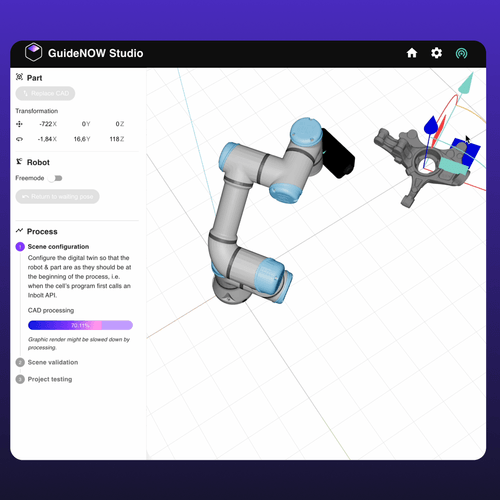This week's digest opens by considering two deeply contrasting views on the future and AI. The 79th session of the United Nations General Assembly is taking place over a two-and-a-half-week block in New York City, from September 10 to 28. As part of the first-ever Summit of the Future, Google CEO Sundar Pichai had the opportunity to deliver a keynote address focusing on the promise AI holds for the future. The keynote also served as the official announcement of Google's Global AI Opportunity Fund, a $120 million investment into AI education and training, to be delivered in local languages by partnering with nonprofits and NGOs.
Pichai's keynote address was compelling precisely because it was optimistic, yet practical. When speaking about the opportunities unlocked by AI, he drove his point not by promising the much sought-after AGI or painting fantastical pictures where AI will solve all of humanity's hard problems. Rather, the focus was redirected to the areas where AI seems to be truly helping people: finding information in their languages, accelerating (but not taking over) scientific discovery, supporting people in harm's way by powering early detection systems for climate change-related incidents such as floods and wildfires, and contributing to economic progress by doing very impressive, yet modest things, like optimizing logistics.
Pichai acknowledged that AI is not exempt from drawbacks, touching upon the negative impact of deep fakes and other misuses and abuses. But still, we are bound to consider that the promise held by AI is so beneficial and transformative that steps must be taken to prevent the digital divide from expanding into an AI divide. The idea was presented with enough moderation that even some AI skeptics would concede that this may not be such a bad idea, even more so when presented in stark contrast to Sam Altman's most recent blog post detailing a report on the current state of AI so blindly optimistic it borders on the obnoxious.
According to Altman, AI will be enough to accomplish feats including "fixing the climate, establishing a space colony, and the discovery of all of physics", and will "get so good that [it will] help us make better next-generation systems and make scientific progress across the board." Tempting as it may be to think about bringing about a utopia where everyone leads a life "better than anyone’s life is now", there is not nearly enough evidence to back any one of these claims, nor is it possible to reliably predict whether AI will truly enable us to achieve more or lead more meaningful lives.
Even something as "simple" as determining whether an AI system is smarter than a human is still a hotly debated topic. Yes, current models excel at solving standardized tests and displaying some extent of expert-level knowledge, but are they truly smarter than humans if they cannot spell, count, or interact with the real world in an open-ended way? It has been debated for some time now that benchmarks aren't even a reliable indicator of model performance. Still, they keep being touted as an indicator not only of competitive performance but as evidence that AI is becoming smarter than humans.
Altman's post and Pichai's keynote share some common ground: they conveniently overlook the extremely high cost of developing AI systems. Pichai delved into the ways AI is helping people to keep safe in times of natural disaster, yet said nothing about how the resource-hungry data centers may very well be contributing to making those climate change-related disasters more frequent in the first place.
Altman remarks on how deep learning improves substantially with scale and claims that a shortage of infrastructure will lead to unavoidable wars. Yet, he seems oblivious to the current state of the matter, where tech giants like Microsoft have to pay to restart a nuclear plant; otherwise, they will have to admit their environmental impact is worse now than it was a couple of years ago. Unfortunately for us—and them—only time will tell whether the promise of AI was as significant as it was originally claimed.
Some other notable headlines this week:
Supermaven has raised $12M to take its coding assistant to the next level: Supermaven, a startup founded by Tabnine creator Jacob Jackson, raised $12 million in funding. Supermaven plans to create a proprietary text editor to overcome the limitations of editor extensions.
Intel's plan to consolidate its chip foundry includes a strategic partnership with AWS: Intel CEO Pat Gelsinger announced significant developments for the company, including a $3 billion Secure Enclave award, an expanded partnership with AWS for custom chip manufacturing, restructuring of Intel's Foundry as an independent subsidiary, and strategic pauses in European facilities.
Slack plans to transform into the go-to hub for working with AI agents: At Dreamforce, Salesforce introduced Agentforce, a platform for building custom AI agents, and showcased Slack's evolution into an AI agent hub with features like AI-generated huddle notes, conversational Workflow Builder, enhanced search, and seamless integration with third-party AI applications.
Google is adding the C2PA provenance standard to flag AI content across Search and Ads: Google is adopting the C2PA technology alongside its existing SynthID watermarking, integrating it into Search and Ads products, exploring implementation in YouTube, and encouraging industry-wide adoption of content provenance standards.
Snap announced new generative AI features at Snap Partner Summit 2024: At its Snap Partner Summit, Snap announced new generative AI features, including Easy Lens for text-based AR creation, AI-powered prebuilt Lenses, and expanded My AI capabilities. These tools aim to enhance content creation and user interaction on Snapchat through generative AI technology.

Runway and Lionsgate announce partnership to create a custom cinematic video model: Runway and Lionsgate have formed a partnership allowing Runway to use Lionsgate's content for AI model development, aiming to enhance creative processes and reduce costs, amid ongoing legal and regulatory challenges surrounding AI in the media industry.
YouTube launched new AI features at its 'Made on YouTube' event: YouTube is introducing AI-powered features, including video generation with Veo for Shorts, creative assistance in YouTube Studio, and AI-enhanced reply suggestions, to enhance content creation and audience engagement while implementing safeguards for AI-generated content.
LinkedIn was reportedly caught training models with user data before updating its policies: LinkedIn opted in users in the US to data collection for AI model training by default and without updating its privacy policy, prompting privacy concerns. The company also failed to correctly specify whether UK-based users were subject to the data collection process, spurring further confusion.
fal secured $23M to grow its hosting platform for media generation models: fal has raised $23 million in funding to accelerate its generative media model hosting platform, which offers high-performance inference APIs and solutions that have attracted a rapidly growing user base of developers and enterprises.
Inbolt raised €15M to expand the market presence of its AI-powered 3D vision system: Inbolt, a Paris-based startup developing AI-powered real-time robot guidance solutions, has secured €15 million in Series A funding to expand its presence in the US and Japan, accelerate product development, and grow its team, building on the success of its GuideNOW software.

Project Amelia is Amazon's new AI-powered personal assistant for independent sellers: Amazon developed Project Amelia, an AI-powered assistant using Amazon Bedrock, to support independent sellers by providing personalized insights, answering questions, and eventually automating tasks to help grow their businesses.
Amazon launched a video generator for its Amazon Ads service: Amazon introduced a generative AI feature for Amazon Ads that creates product videos and animated images from single product photos, aiming to help sellers produce engaging content more easily.
Black Forest Labs reportedly looks to raise about $100M at a $1B valuation: Black Forest Labs, a startup founded by experts in image diffusion models and the creator of the FLUX.1 model suite, is reportedly seeking to raise $100 million at a $1 billion valuation, likely by leveraging its collaboration with X and promising upcoming text-to-video generation models.







Comments